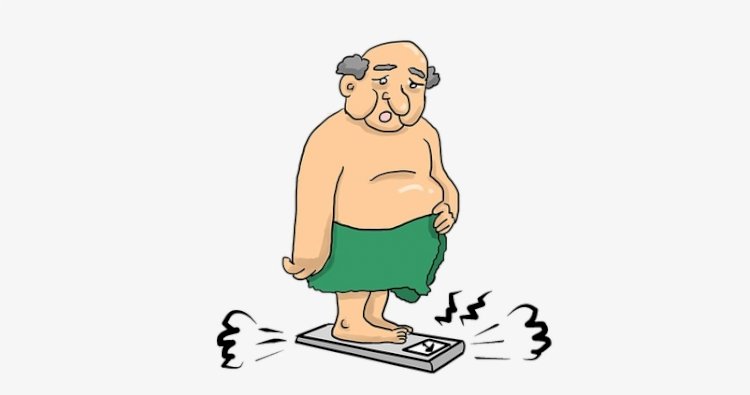Am I Obese ? Don't Obey- It is BAD
Obesity is a medical condition that happens when an individual weighs excess muscle or fat that influences their wellbeing in an unhealthy state.

A high body mass index is considered to be obese. Overweight and obesity are significantly high-risk factors for various medical conditions such as diabetes, cardiovascular illness, and malignancy. Maintaining a healthy weight or losing through diet and exercise is one way to prevent or reduce obesity. In some cases, a person might need surgery.
Now read on to find out why obesity happens.
When a person consumes extra calories than they use as energy, their body will store excess calories as fat. This leads to excessive weight and obesity. Some foods also lead to excessive weight gain. For example; Intake of high sugars and fats.
Foods that tend to increase the risk of obesity:
- Fast foods
- Fried foods, such as french fries
- Fatty and processed meats
- Dairy products
- Foods with added sugar, such as baked goods, ready-made breakfast cereals, and cookies
- Sweetened juices, sodas, and alcoholic drinks
- Processed, high-carb foods, such as bread and bagels
Some processed food products contain a very amount of fructose corn syrup as a food sweetener, including savory items, such as ketchup. Eating too much of these foods and doing too little exercise will result in excessive weight gain and end up being obese. Overeating of healthy foods can also lead to obesity. Fresh foods and whole grains contain fiber, which makes a person feel full for longer and encourages healthy digestion only if consumed in an adequate quantity.
- Working in an office rather than doing manual labor
- Going to places by car instead of walking or cycling
- The less an individual moves around, the fewer calories they burn.
-
Playing games on a computer instead of doing physical activities outdoors.
- Some medicines cause weight gain if consumed over a period of time.
- Atypical antipsychotics, especially olanzapine, quetiapine, and risperidone
- Anticonvulsants and mood stabilizers, and specifically gabapentin
- Hypoglycemic medications, such as tolbutamide
- Glucocorticoids used to treat rheumatoid arthritis
- Antidepressants
However, some medications may lead to weight loss. Anyone who is starting a new medication and is concerned about their weight should consult their doctor whether the drug is likely to have any effects on body weight.
Conclusion
Many factors play a role in the development of obesity. Genetic traits can increase the risk of some people. A healthy diet that contains plenty of fresh food, together with regular exercise, will reduce the risk of obesity and obesity-related health conditions.
“Physical fitness is the first requisite of happiness.” – Joseph Pilates.


 Shivani Sharma A
Shivani Sharma A 










